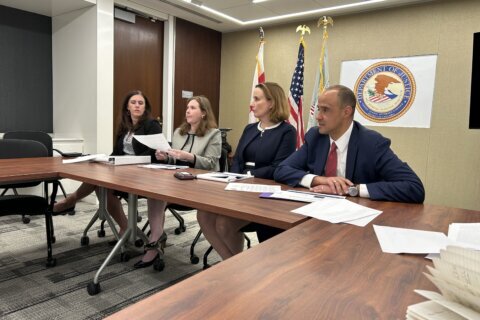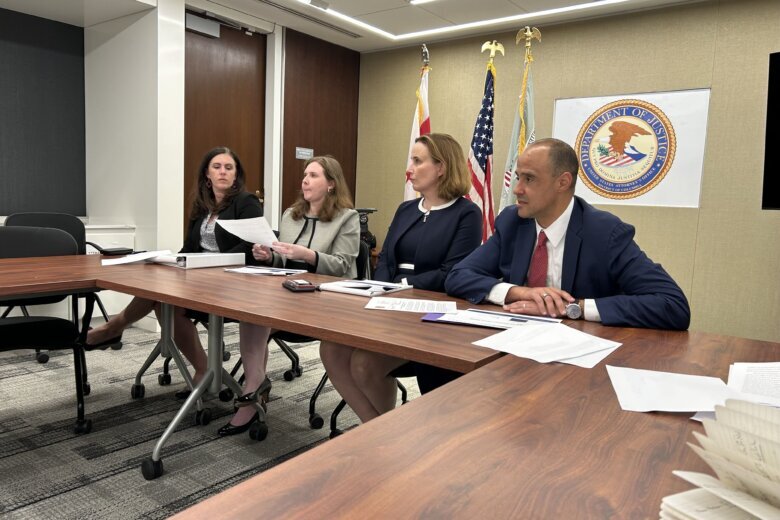
The U.S. Attorney’s Office for D.C. prosecuted more cases in fiscal 2023 than the year before, according to data shared during a briefing with reporters Thursday.
In fiscal year 2023, U.S. Attorney for D.C. Matthew Graves said the office prosecuted 44% of cases, a figure that reached 53% in the fourth quarter of the fiscal year that ended last month. That’s up from the 33% it prosecuted in fiscal year 2022.
Currently, about 60% of arrests for violations of D.C. law are either charged at the time of arrest by Graves’ office or transferred to the D.C. Office of Attorney General for prosecution, he said.
The increase, Graves said, is in part the result of his office having full drug testing capability. When D.C.’s troubled crime lab lost its accreditation two years ago, it was no longer able to test evidence or have experts testify about the evidence that gets tested.
When Graves started in his role in 2021, he said the office didn’t have the ability to charge most drug cases because there wasn’t sufficient evidence unless someone confessed to what the item was.
The data release comes as community members, city leaders and members of Congress are growing frustrated at the rise in violent crime across the city.
“We see the shootings, we see the carjackings, we see the robberies,” Graves said. “It is unacceptable. Our prosecutorial efforts are really focused there.”
There’s a misunderstanding, Graves said, about his office’s prosecution in cases involving serious violent crime. In fiscal 2023, his office charged 90% of serious violent crimes, which include charges such as homicide, carjacking and first-degree sexual abuse. The office has only charged less than 90% of serious violent crimes once in the last eight fiscal years, according to city data.
There’s also not a “specific magical number” of cases that his office should aspire to prosecute, Graves said, responding to public criticism that the office isn’t prosecuting enough.
“That roughly 10% that we can’t charge at the time of arrest, we continue to investigate, and where we develop sufficient evidence, we subsequently bring charges,” Graves said. “That has always been the case, and that will always be the case.”
Of the remaining cases his office is not charging, Graves said about half of them are low-level cases with a victim, “where the victim doesn’t want to go forward, and the person charged doesn’t present a danger to the community in our assessment.”
In about 7% of arrests, Graves said his office uses prosecutorial discretion and decides not to charge an arrest in a case.
“One was literally someone throwing food at someone else,” he said. “It’s technically an assault. I don’t think people want us focusing our prosecutorial resources on that case.”
In 13.4% of arrests, there’s insufficient evidence, and in 2.9% of arrests, there’s an affirmative defense, which Graves said could mean someone acted in self-defense or that there’s no way for prosecutors to disprove a defense.
While the Office of Attorney General prosecutes juveniles, Graves said, his office can prosecute 16 and 17-year-olds for certain offenses, such as armed robbery. The number of juveniles his office has charged has remained about the same in the last few years, he said.
“There’s clearly, in the data, something going on with a non-insignificant portion of our juveniles,” Graves said. “When they engage in conduct that is adult conduct that should be prosecuted, we will do so. But no one should be under the illusion that that’s all we need to do to fix what is going on in our community right now.”
As for the number of firearms in the community, Graves said his office is “very much concerned about the trends we’re seeing. And we’re going to be talking a lot more about that in the coming weeks.”









